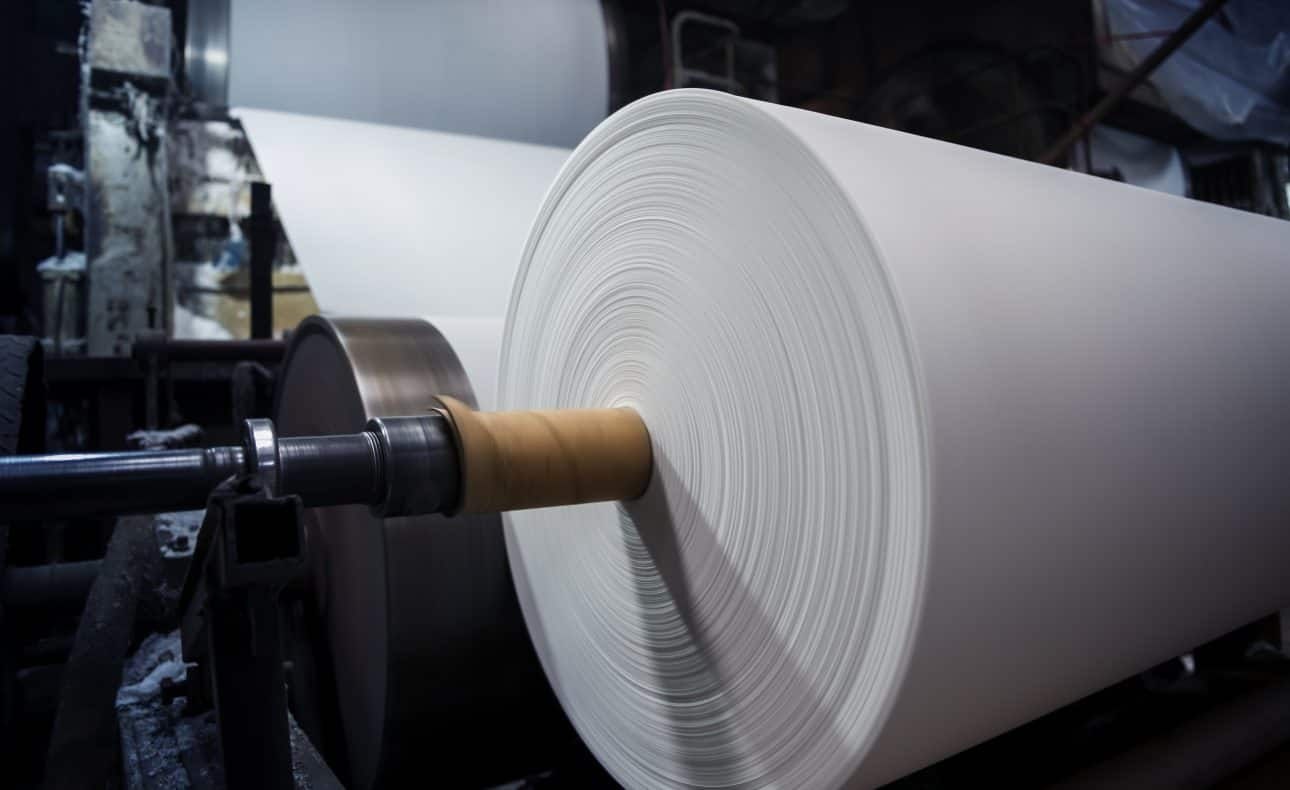Business
Indian Paper Industry Warns of Import Surge Post-GST Reform

The Indian paper industry has voiced strong concerns regarding a possible increase in paper imports following recent changes to the Goods and Services Tax (GST). The Indian Paper Manufacturers Association (IPMA) warns that these reforms could diminish the competitiveness of domestic producers and undermine the government’s flagship initiative, ‘Make in India.’
Pawan Agarwal, President of the IPMA, highlighted that the alterations in the GST structure might transform India into a dumping ground for cheaper imported paper. He stated, “While domestic manufacturers are being burdened with higher input costs, imported paper used for exercise books and notebooks will now enter the country completely tax-free. This will distort market dynamics and deal a blow to Indian producers.”
The IPMA has reported that paper imports into India have already doubled in the last four years, with a compound annual growth rate (CAGR) exceeding 17 percent in volume—one of the highest among major commodities. According to data from the Commerce Department, imports of paper and paperboard escalated from 1.08 million tonnes in FY21 to 2.06 million tonnes in FY25, reaching nearly Rs 15,000 crore in monetary terms.
With the recent GST changes, the paper industry fears this upward trend could evolve into an overwhelming influx of imports. Under the revised GST framework, uncoated paper utilized for exercise books and notebooks has been exempted from GST, leading to a reduction of the Integrated GST (IGST) on imports of such paper to zero. This exemption means that foreign exporters will incur no IGST, while Indian manufacturers, now ineligible for input tax credit (ITC) due to the exempted GST on the final product, will bear the burden of embedded input tax in their cost structure.
The IPMA points out that this situation creates a significant price disparity, making imported paper significantly cheaper than domestically produced alternatives. Domestic manufacturers of notebooks and textbooks will face increased production costs, with estimates suggesting a rise of 3 to 5 percent for notebooks and over 6 percent for printed textbooks. This increase could ultimately impact school children and the broader education sector.
The association has called on the government to reconsider these GST reforms to ensure that domestic manufacturers can compete effectively in the market. The potential consequences of an influx of cheap imports could not only affect industry viability but also the quality and availability of local educational materials.
As the debate continues, the paper industry remains vigilant, emphasizing the need for policies that support local production and protect the interests of Indian manufacturers. The implications of these GST changes are likely to resonate throughout the industry, influencing pricing and availability in the near future.
-

 World5 months ago
World5 months agoSBI Announces QIP Floor Price at ₹811.05 Per Share
-

 Lifestyle5 months ago
Lifestyle5 months agoCept Unveils ₹3.1 Crore Urban Mobility Plan for Sustainable Growth
-

 Science4 months ago
Science4 months agoNew Blood Group Discovered in South Indian Woman at Rotary Centre
-

 World5 months ago
World5 months agoTorrential Rains Cause Flash Flooding in New York and New Jersey
-

 Top Stories5 months ago
Top Stories5 months agoKonkani Cultural Organisation to Host Pearl Jubilee in Abu Dhabi
-

 Sports4 months ago
Sports4 months agoBroad Advocates for Bowling Change Ahead of Final Test Against India
-

 Science5 months ago
Science5 months agoNothing Headphone 1 Review: A Bold Contender in Audio Design
-

 Top Stories5 months ago
Top Stories5 months agoAir India Crash Investigation Highlights Boeing Fuel Switch Concerns
-

 Business5 months ago
Business5 months agoIndian Stock Market Rebounds: Sensex and Nifty Rise After Four-Day Decline
-

 Sports4 months ago
Sports4 months agoCristian Totti Retires at 19: Pressure of Fame Takes Toll
-

 Politics5 months ago
Politics5 months agoAbandoned Doberman Finds New Home After Journey to Prague
-

 Top Stories5 months ago
Top Stories5 months agoPatna Bank Manager Abhishek Varun Found Dead in Well









